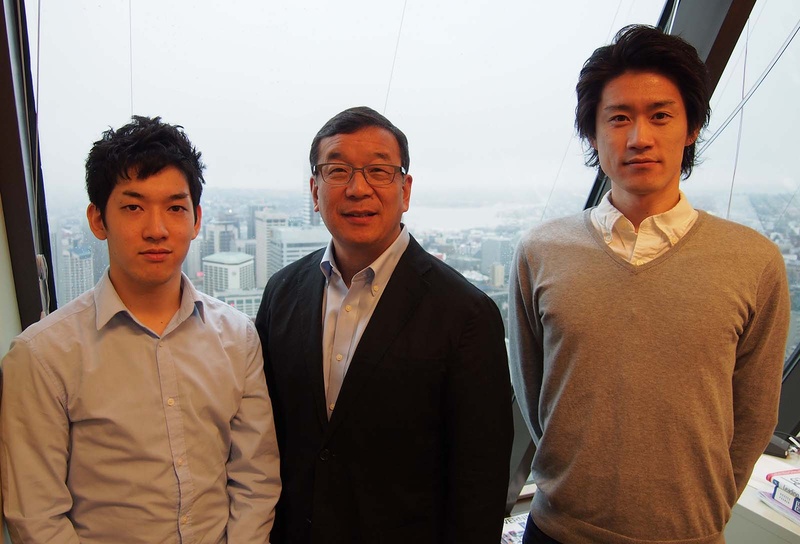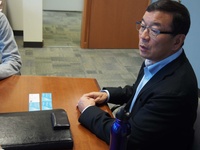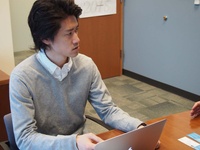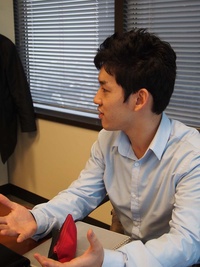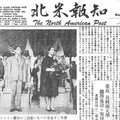A Japanese-American who grew up and was educated in the United States, and a Japanese student studying in the United States who was raised in Japan and experienced culture shock in the United States. We planned a roundtable discussion and exchange of opinions on their common interest, "Japan." Continued from the previous post .
What do you think about Japan's influence in the world?
John Okamoto: I think Japan has been in a long period of stagnation and is now in a "dark" state. It seems like Japan is still searching for its place in the new world.
In the past decade, we have seen multiple changes in prime ministers. The world has changed from a manufacturing economy to one of information technology. Many organisations have been searching for their edge in this brain-driven age.
It is not easy for any country to make a transition. However, Japan still has a large economic power in the world, and can utilize talented engineers and technological capabilities. Japanese people are disappointed that Japan has lost its power compared to China's economic growth. China is very large in both size and natural resources. I don't think there is any need to be that disappointed. Japan is a wonderful country.
Kondo Kosuke (hereinafter Kondo): I think Japan is still a wonderful country. However, if we cannot change our way of thinking and acting, it will decline. We will no longer be able to say that it is a wonderful country. We should think about the future of Japan. I am worried about the future of Japan, but I am not discouraged.
Japan has achieved two miracles so far. The first was the Meiji Restoration. The second was after the Second World War. Japan adopted Western culture and systems, remade itself, and grew. Japan has a great spirit. It will hit a big wall in the near future. But I believe we can overcome it.
Okamoto: I saw a positive side for Japan. After the Great East Japan Earthquake, young people were asking tougher questions about nuclear power. The younger generation wants to change things. Five or ten years ago, I was more worried about Japan than I am now.
Japanese people, what do you think Japan should change to improve its influence?
Okamoto: That's what you're doing now. When you study abroad, you're forced to learn about other cultures, ways of thinking, and ways of asking questions. And you learn the good things about your own culture, how to think, how to grow, and the importance of asking questions, and you take that back to your own countries. One of those things is having these conversations where young people ask how they can improve their influence in the world. I can't even remember how many times I've had these conversations.
Toshiya Suzuki (hereinafter Suzuki): Is there anything you would like to say to the younger generation in Japan from your perspective as a Japanese person?
Okamoto: It's about valuing traditional Japanese values like family, community, hard work, education, etc. It will support you in your role as an individual and as a member of society.
Suzuki: An American friend once told me, "The United States has a short history since its founding compared to Japan, and I envy Japan for that." The United States has a short history, but Japan has a strong identity that is built on more than 2,000 years of history, and this should be our strength. However, because there are few opportunities to interact with foreigners, Japanese people are not aware of this. Japan is surrounded by the sea and has been protected from other countries. I think that Japanese people should feel more different cultures and be inspired by people from other countries (to know themselves).
What do you think about the Japanese education system?
Okamoto: I think it's a very structured education system. It seems to be good at teaching facts. However, it's a problem that it's not easy to get into universities. I also think that universities need to place importance on nurturing "critical thinking" and an entrepreneurial spirit.
Suzuki: There are very few classes on entrepreneurship in our universities. I think it is a very necessary education. Also, the problem is that there are not enough teachers to teach it.
How would Japan change if more people had critical thinking skills?
Okamoto: More people will debate solutions to political problems. In the business environment, more new ideas will emerge to solve problems. I think there will be a more challenging attitude towards the status quo.
Kondo: In recent years, many Japanese people are indifferent to political and economic issues. There are not enough people who think about what the problems are. I think critical thinking is very important so that Japanese people can find the problems.
What does "Japan" mean to you?
Okamoto: It's my roots, my family history, and it's an important place.
Kondo: This is the first time I've been asked this question. Japan is like a family to me and it's very important to me.
Suzuki: It's very difficult to know how to answer this. I was born and raised in Japan, and now I'm living abroad for the first time for an extended period of time. I definitely feel that Japan is my identity.
How do you want to be involved with Japan in the future?
Okamoto: I had a guest from Yufuin in January, and it made me feel closer to Japan and made me want to do something for Japan. I also had brunch with Taro Kono (member of the House of Representatives) when he came to Seattle recently.
I feel closer to Japan since I participated in the Japanese American Leadership Mission in 2010, and I try to keep the relationships I have built fresh. In February and March, I will be mentoring young people who want to become business entrepreneurs who contribute to society.
[Interviewer profile]
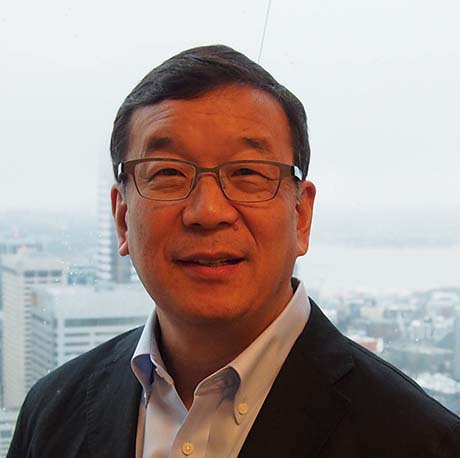
John Okamoto <br />A third-generation Japanese-American. Special Planning Advisor for the City of Seattle. Master's in Public Administration from the University of Washington. Has held key positions at Seattle City Hall, the Washington State Department of Transportation, the Port of Seattle, and the Washington State Teachers Association. While working at the Port of Seattle, he visited Japan twice a year. In 2010, he participated in the Japanese American Leadership Mission.
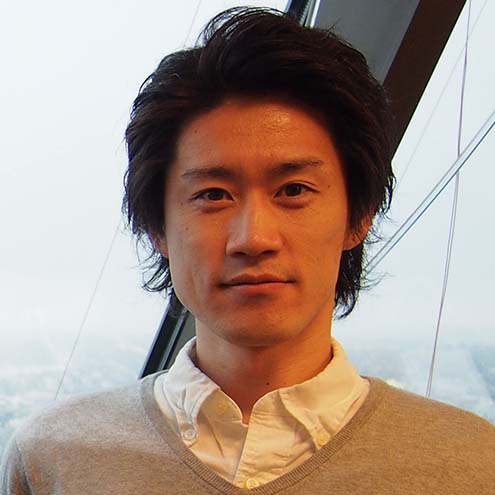
After leaving a Japanese trading company where he had worked for over six years, Kosuke Kondo went to Seattle to study abroad in March 2014. He took certificate classes in English and business at the University of Washington, and in June of the same year, he founded "Arch for Startup," a student organization linking Seattle and Japan, together with other Japanese students in the same study abroad program.
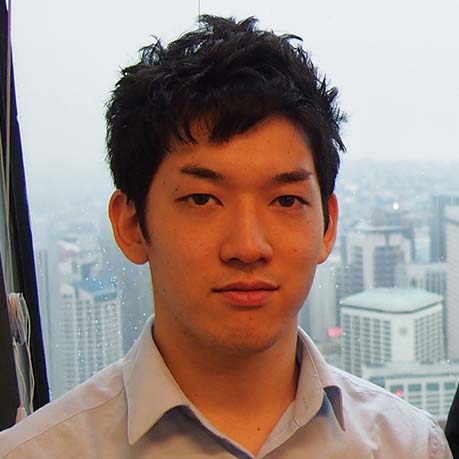
Toshiya Suzuki <br />Majoring in civil engineering at the University of Tokyo Graduate School. He took a leave of absence from graduate school to study abroad in Seattle in March 2014. He took certificate classes in English and business at the University of Washington, and in June 2014 he launched Arch for Startup with other Japanese students in the same study abroad program.
*This article is reprinted from the March 5, 2015 edition of the North American Post (Vol. 70, Issue 11).
© 2015 The North American Post


